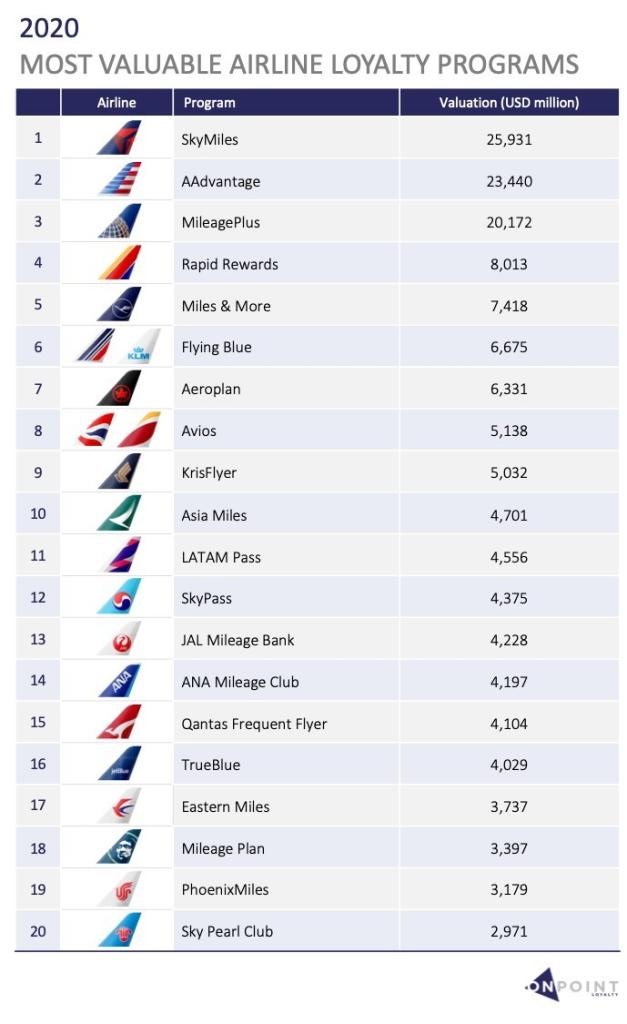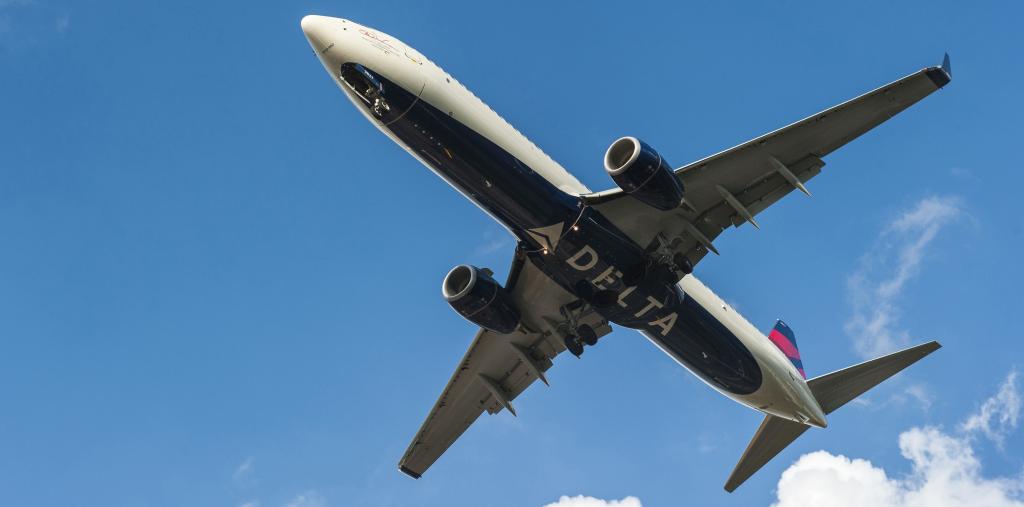The tremendous value of loyalty has been displayed clearly across the airline scene in North America, but it is not just restricted to this area and there are examples of good practices of using the power of loyalty to deliver benefits during the current tough trading times that air travel is currently facing.
On Point Loyalty, a global consulting and investment firm focused exclusively on the airline loyalty space, showed in its 2020 report on the top 100 most valuable airline loyalty programmes, that it is the established programmes of the US majors that continue to dominate.
All of the top ten loyalty programmes, which as the chart below illustrates is headed by US airlines, increased in value between 2017 and 2020, with the US majors of American Airlines, Delta Air Lines and United Airlines seeing AAdvantage, SkyMiles and MileagePlus programmes all valued at more than USD20,000 million.

The report highlights that first and foremost, airline loyalty programmes are formidable marketing tools. "Well-executed programs drive customer engagement, and act as a springboard for the ongoing transformation and digitalisation of the business. The rich dataset offers an unparalleled foundation to build lasting customer relationships," it explains.
During the ongoing Covid-19 crisis we have seen Air Canada push ahead with the launch of its redefined Aeroplan loyalty programme having bought it back a few years earlier, while United Airlines mortgaged its frequent-flyer programme to secure a USD5 billion loan from three banks to build a cash cushion to see it through the coronavirus pandemic. Additionally, we have seen JetBlue Airways selling loyalty points to Barclays for USD150 million with Hilton Worldwide and Marriott International following this latter method to raise USD1 billion and USD920 million, respectively.
Now Delta Air Lines, which On Point Loyalty, believes has the highest value loyalty programme in the world, has used it to raise USD6.5 billion to bolster its liquidity and in doing so has provided some further insights into the underlying strengths of the programme and the important role it continues to play in supporting the US major.
The deal sees the programme being used as collateral to raise USD6.5 billion cash for newly formed Cayman Islands-registered company SkyMiles IP, an indirectly wholly owned subsidiary of Delta. SkyMiles IP will lend the net proceeds from the offering to Delta to bolster its liquidity, after depositing a portion of the proceeds in a reserve account. The US major is understood to be losing as much as USD27 million a day in cash due to the unprecedented drop in air travel demand and despite significant cost cutting.
Many loyalty programmes have seen their value to corporate customers become diluted a little over the past decade as they have become more wider all-encompassing products to attract a wider consumer base. That has certainly been the case with SkyMiles, as Delta's recent 8-K Securities and Exchanges Commission (SEC) filing associated with the transaction highlights.

The airline highlights that Sky Miles "is core to Delta", it "contributes to Delta's customer loyalty and consistent customer engagement", and "enables retention of premium travellers". In the current environment it is its "attractive business model allowing flexibility to control costs and preserve margins" and it "significant diversity of cash flows with a long-term track record of stable and growing performance through cycles" that are perhaps most rewarding.
Delta acknowledges in that filing that there has been a huge -77.9% decline in miles redeemed in the first half of the year, resulting in an almost two thirds (-60.1%) drop in passenger revenue. However, frequent fliers have been continuing to use their Delta SkyMiles credit cards, and cash from sales to American Express declined only -5% year-over-year to USD1.9 billion.
The filing also tells us that SkyMiles has over 100 million members and last year accounted for more than 60% of Delta's ticketing revenue with over 75% of cash flow coming from partners, the biggest of which is American Express. The partnership with Amex, which will continue through 2029, contributed USD4.1 billion to the SkyMiles program, and has seen significant growth over the last ten years growing from a USD1.2 billion contribution in 2009 and doubling the USD2.0 billion contribution seen in 2014.
The SkyMiles travellers offer a small premium above non-members, but when it comes to Medallion members - SkyMiles members that have achieved special status levels based on their miles flown and eligible purchases made for travel on Delta - that premium grows to 1.5 times. Delta says that attracting the right travellers into the SkyMiles programme provides "an opportunity to create a multi-year pipeline of premium revenue". Interestingly, 97% of all redemptions are on Delta.
The power of a successful loyalty programme is clear to see in this filing from Delta. And while customer traffic has declined, this year's 1H performance data shows SkyMiles members remain engaged as they continue to earn miles via their co-branded credit cards.